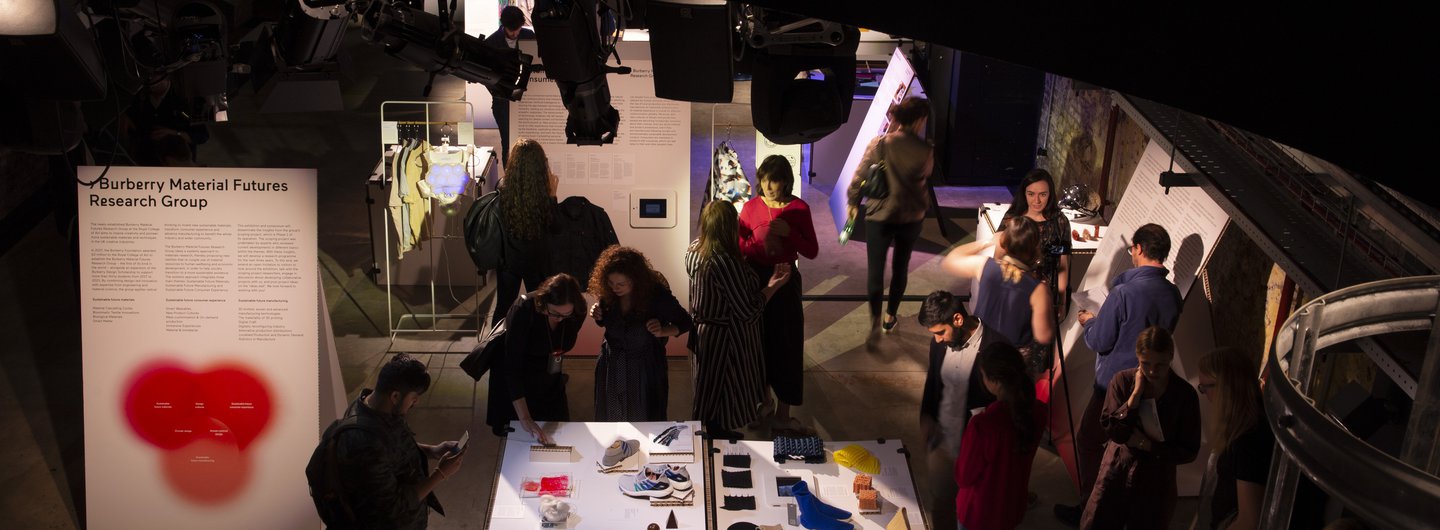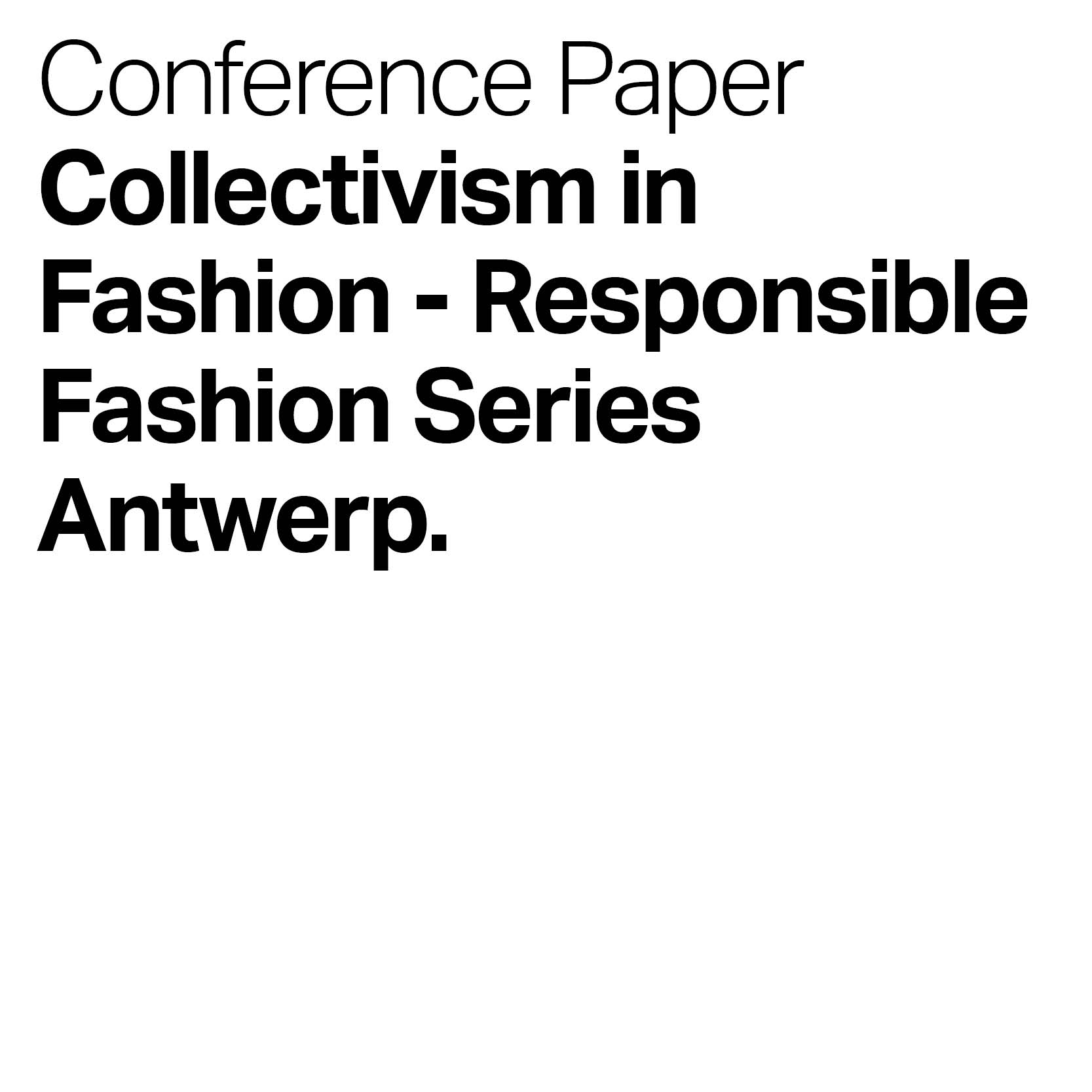
Bookchapter: Breaking the Script
ten Bhomer, Marloes, Hoette, Ruby, Pollmann, Alexa, Poslethwaite, Susan and Thiel, Kat (2017) Breaking the script. In: Thornquist, Clemens and Bigolin, Ricarda, (eds.) Everything and everybody as material : beyond fashion design methods.
Boras, Sweden: The School of Fashion and Textiles, RMIT University and The Swedish School of Textiles, University of Boras. pp. 226-231. ISBN 9789188269799
Abstract
Breaking the Script - Fashion Critiques and Conversations, Thoughts in Progress’ is a group presentation of a “working manifesto” at EEM2017 conference. The role of the fashion designer is broadening and shifting and in the academic, as well in their roles of creative practitioners, the collective feels a responsibility to develop new tools and resources for coming generations. A critical reflection on the fashion system – informed by a wide spectrum of roles and reaching from student to industry – is emerging in isolated pockets and on the fringes. At the EEM conference 2017 they shared their ‘thoughts in progress’ through an evolving and participatory manifesto – not as a finished document but rather as a series of live provocations towards re-imagining the very structures and material of fashion education as they have experienced it through the institutions they have studied and worked within.

 The Sustainable Future Consumer Experience scoping project exhibition took place alongside a conference and investigated experiences around the consumption and use of products that would catalyse consumers to be custodians of materials.
The Sustainable Future Consumer Experience scoping project exhibition took place alongside a conference and investigated experiences around the consumption and use of products that would catalyse consumers to be custodians of materials.Our research was aimed at enabling consumers to have a key role and to actively participate in enabling circularity, and was focused through our main research question: “How can designed experiences catalyse people to be custodians of materials, and therefore stakeholders in material circularity, as a circular design strategy?”Through our work, we established a Circular Consumer Experience Framework, grounded on the values of sustainability and wellbeing, to engage people in interactive, meaningful, co-creative and sustainable cultures around products. Through our interdisciplinary collaborations, we explored psychological, social and experiential aspects of human-material interactions and the space that needs to be prepared for new materials to come into, in ways that promote sustainable consumption.

The Compositor Tool: Investigating Consumer Experiences in the Circular Economy
by Bruna Petreca 1,*,Sharon Baurley 1,Katrine Hesseldahl 1,Alexa Pollmann 2 and Marianna Obrist 3
Materials Science Research Centre, Royal College of Art, London SW11 4NL, UK
London College of Fashion, University of the Arts London, London W1G 0BJ, UK
Department of Computer Science, University College London, London WC1E 6EA, UK
Author to whom correspondence should be addressed.Multimodal Technol. Interact. 2022, 6(4), 24; https://doi.org/10.3390/mti6040024Received: 28 January 2022 / Revised: 18 March 2022 / Accepted: 31 March 2022 / Published: 6 April 2022(This article belongs to the Special Issue Creative Methods and Tools for Multimodal Technologies)
Full paper at:
https://www.mdpi.com/1575280

Collectivism in
Fashion:
The Abolition of
Euromerican Ideals?
Author: Alexa Pollmann
Subject Leader in Wearable Technology, London College of Fashion (UAL)
Subtheme: Breaking the Mold
Keywords: inter-relational creativity, transition design, equality & inclusion, co-design, global perspectives, Big-Ego Design
Cheered for by the fashion industry and education, the sector's sustainable solution to our current disastrous climate crisis is the elimination of waste materials through circularity. This is a quick response to answer a complex challenge, and possibly one made to ensure the continuation of the current systems in place: the advent of endless consumption made possible through reuse and recycle. What if fashion instead were to look for alternative modes of existence? The answers may lie in the margins, known to us all, but less lucrative and much less fitting to euromerican ideals of individualism. Collectivist ideas of fashion production are common in social design practices but often overlooked in the grand scheme of fashion presentation and perception.
With interviews of Pierra Ntayombya (Haute Baso, Rwanda), Ruhul Abdin (Paraa, Bangladesh) & Cornelia Zoller/Ayleen Meissner (People Berlin, Germany).
If you would like to read the full paper, please get in touch.
